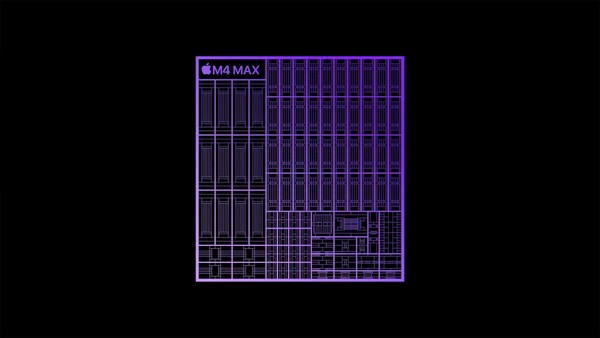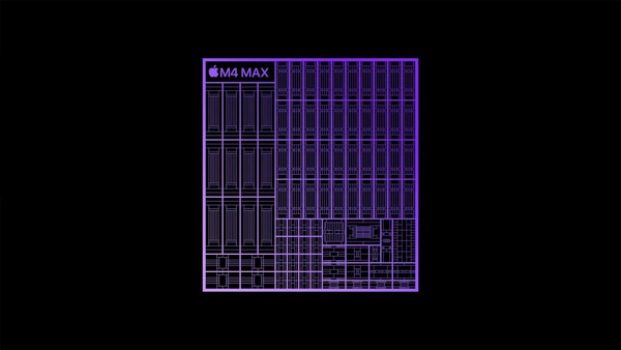Apple has recently unveiled its most powerful processor in the M4 series: the M4 Max processor. This chip brings outstanding performance, featuring a 16-core CPU and a 40-core GPU. It’s designed to handle even the most demanding tasks. One of its most notable features is the 546GB/s memory bandwidth, marking the first time a non-Ultra Apple chip has exceeded 500GB/s.

Unmatched Memory Bandwidth for Non-Ultra Chips
The M4 Max processor pushes the boundaries for memory bandwidth in Apple’s non-Ultra chips. With a bandwidth of 546GB/s, it outshines its predecessors and sets a new standard for high-performance computing. This chip is engineered to provide fast speeds, especially under heavy workloads. In fact, it marks a significant milestone, as no other non-Ultra processor has reached this level of performance before.
However, while the M4 Max boasts impressive speeds, it still falls short of the 800GB/s bandwidth of the M1 Ultra and M2 Ultra. The M1 and M2 Ultra processors use Apple’s UltraFusion technology, which merges two M1 Max chips to achieve ultra-high bandwidth.
M4 Max vs. M4 Pro: A Major Leap in Performance
When Apple released the M4 Pro, it was hailed as the fastest processor. It surpassed the M3 Max and M2 Ultra in terms of multi-core performance and memory bandwidth. Yet, the release of the M4 Max has changed that. With a memory bandwidth of 546GB/s, the M4 Max processor outperforms the M4 Pro.
To put it in perspective, the M4 Pro offers 273GB/s of bandwidth with a maximum memory configuration of 64GB. In contrast, the M4 Max supports up to 128GB of unified memory, doubling the bandwidth compared to the M4 Pro.
M1 Ultra, M2 Ultra, and M4 Max: Comparing the Top Performers
Looking at the M4 Max in comparison to previous Ultra models offers a better understanding of its place in Apple’s lineup. The M1 Ultra, for example, supports 128GB of memory and achieves an impressive 800GB/s bandwidth, thanks to the UltraFusion technology. This technology connects two M1 Max chips into a single unit, significantly boosting bandwidth.
Similarly, the M2 Ultra supports up to 192GB of unified memory but still maintains the 800GB/s bandwidth. This limitation is likely due to design constraints rather than any hardware bottlenecks.
Conclusion: M4 Max Pushes the Limits of Performance
The M4 Max processor marks a huge leap forward in Apple’s chip development. With a memory bandwidth exceeding 500GB/s, it sets a new benchmark for non-Ultra processors. While it doesn’t match the 800GB/s of the M1 Ultra and M2 Ultra, the M4 Max still delivers exceptional performance. This chip will undoubtedly serve as a powerhouse for demanding tasks for years to come.
For more technology insights and the latest news, visit TinyDeals.





